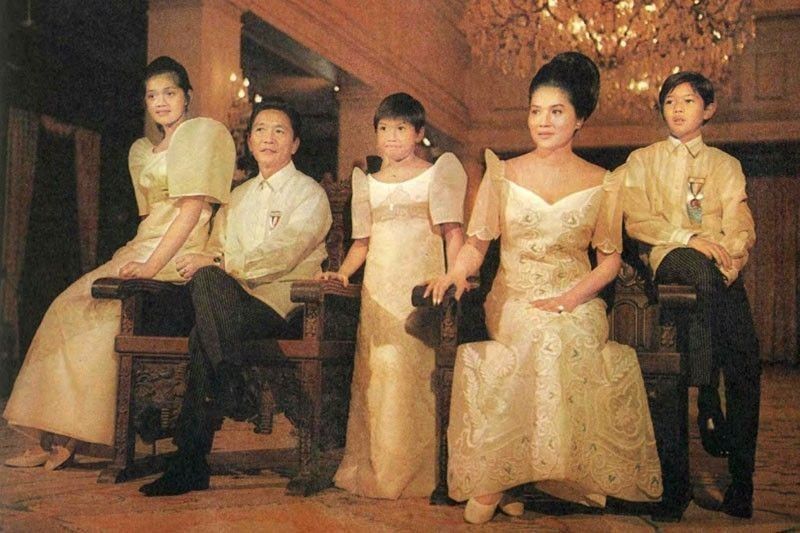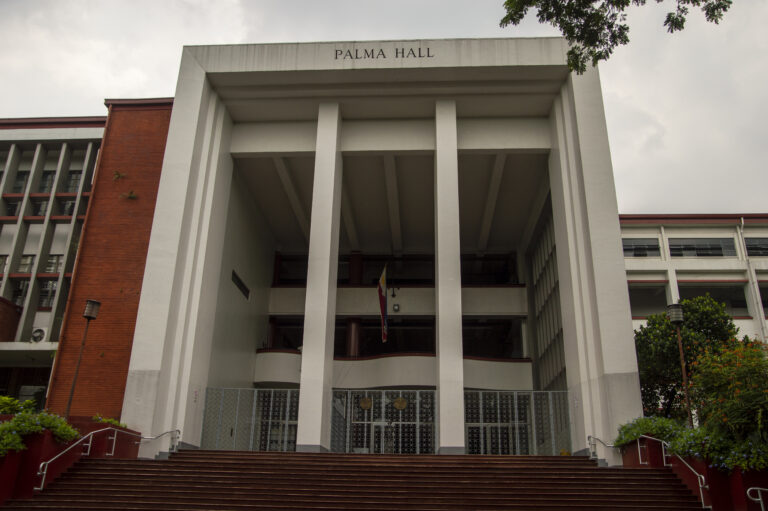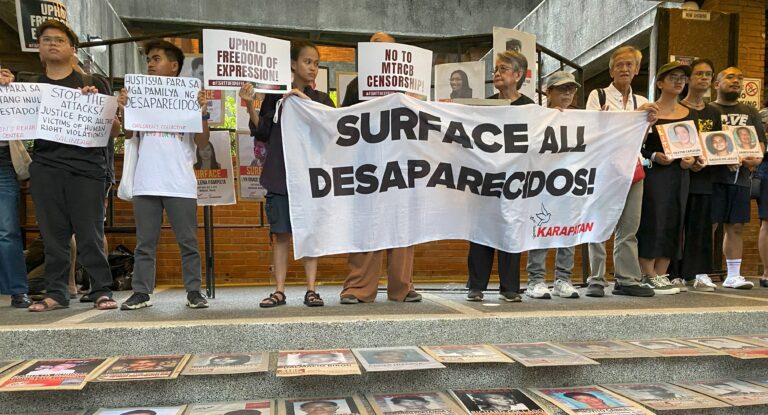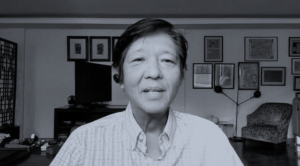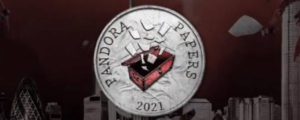
“The Marcoses have fled the country.”
At exactly 9:52 PM on February 25, 1986, DZRH announced that the once-mighty strongman Ferdinand Marcos was now in exile together with his family. On the ground, Filipinos who have endured years of hardship finally had reason to rejoice — the EDSA People Power Revolution has ousted the cruel dictator and ushered in a new dawn.
Thirty-four years later, however, it seems that midnight is on the horizon once again.
Last September 2, the House of Representatives passed House Bill (HB) No. 7137 that declares September 11 as “President Ferdinand Edralin Marcos Day” in Ilocos Norte. With the bill poised to breeze through the Senate, President Duterte will have no trouble signing it into law.
Despite being only a measure of local application, HB 7137 has dangerous national implications. It mandates the celebration of a human rights abuser, plunderer, and tyrant’s birth anniversary while implicitly revising Philippine history. HB 7137 is also merely another step in the Marcoses’ quest to regain lost power and prestige.
Make no mistake: Marcos is not a hero. No amount of propaganda from his family’s loyalists and paid online trolls will ever change that. However, the preponderance of false information has forced us to make frequent trips down memory lane to correct false perceptions of history. It may be a dark and grisly journey, but it is necessary if we are to learn from the past and decisively chart our future.
THE GOLDEN AGE OF HUMAN RIGHTS VIOLATIONS
A quick internet search for “Marcos Achievements” will yield numerous articles trumpeting the late dictator’s supposed contributions to peace and prosperity in the Philippines. They gleefully reminisce about a golden age that “Filipinos yearn to bring back.”
They are right. Marcos’ rule was indeed a golden age — for human rights violations, that is.
The Marcoses’ desire to be the Philippines’ next top dynasty led them to silence the critical press and eliminate anyone that gets in their way. Marcos, despite making the fight against subversion a centerpiece of his “New Society,” became the communist insurgency’s top recruiter. The Philippines’ shrinking democratic space and deteriorating political environment drove many towards the trenches of activism.
As a result, there were 70,000 people imprisoned, 34,000 tortured, and 3,240 killed at the height of martial rule in the country according to data from Amnesty International. The Marcos regime had no shortage of gruesome methods in tormenting its political prisoners — many of whom are yet to surface.
(READ: https://rappler.com/…/marcos-dictatorship-martial-law…)
The Martial law era is arguably the darkest chapter in history for the nation’s bright, young minds. Arrests, disappearances, and killings sponsored by Marcos’ government may have well robbed the Philippines an entire generation of leaders.
Today, human rights victims and their families are still crying for justice. As the Marcoses re-establish their political capital, many claimants who tremendously suffered under their rule are yet to receive even financial compensation.
So, feel free to say “Happy birthday, President Marcos!” every September 11. Just remember to serve his signature confection — a cake iced with blood and frosted with bullets.
A VANITY-FUELED ECONOMIC DISASTER
“We own practically everything.”
Imelda Marcos could not have been blunter about how wealthy and powerful her family was at the height of their prominence in a 1998 interview with the Philippine Daily Inquirer. Nevertheless, Imelda’s sentiment rings true. Despite promising to dislodge the country’s ruling oligarchs, she and her husband ended up nurturing equally corrupt cronies to replace them.
While the First Family lavished, the average Filipino had a different story to tell. As the country’s neighbors emerged as “Asian Tigers,” Marcos’ disastrous policies plunged the Philippines into an economic meltdown.
According to Ateneo School of Government Dean Dr. Ronald Mendoza, “state-run monopolies, mismanaged exchange rates, and imprudent monetary policy and debt management, all underpinned by rampant corruption and cronyism” contributed to the Philippines’ worst economic contraction on record at the time.
Amid widespread poverty and social unrest, the Marcos regime was in desperate need of a distraction. Imelda, who claims that she is “allergic to ugliness,” enthusiastically took up the challenge. She proceeded to oversee a massive infrastructure blitz that ironically aggravated the country’s economic woes.
(READ: https://newslab.philstar.com/31-years-of…/building-spree)
Marcos loyalists would often raise Imelda’s extravagant structures whenever confronted with dark truths about the Martial law era. However, they always forget to mention that the Filipino people will continue paying the debts incurred by her vanity projects until 2025.
More than three decades since their ouster, we have been unable to retrieve a significant chunk of the Marcoses’ ill-gotten wealth. Although the Sandiganbayan Fifth Division convicted the former First Lady in seven counts of graft back in 2018, she is yet to serve one second of jail time.
Despite cultivating a culture of nepotism and impunity, and holding a Guinness World Record for the “Greatest Robbery of a Government,” Imelda Marcos remains unperturbed after all these years.
“I think I deserve more shoes,” she jested back in 2011.
DUTERTE: MARCOS WANNABE
The Marcos regime conjured such an oppressive environment that many Filipinos today deem unimaginable. In many ways, it is akin to the dystopian Panem where Katniss Everdeen lived, minus the Hunger Games.
An article like this would have never made it to print and would have cost journalists their lives. Education and even entertainment were bereft of politics but overflowing with propaganda: the Marcoses could do no wrong, and anyone who fails to fall in line will pay the ultimate price. After the Marcoses fell from grace, Filipinos vowed that horrors like these must never happen again.
Unfortunately, President Rodrigo Duterte had different plans.
Duterte, constrained by the 1987 Constitution’s provisions, was not able to put the entire Philippines under Martial law. Instead, he resorted to undermining the country’s democratic institutions one after the other. Today, Duterte has both legislative chambers under his sway, appointed 12 out of 15 Supreme Court Justices, and transformed the executive branch into a hub for retired generals.
(READ: https://www.worldpoliticsreview.com/…/with-even-fewer…)
Much like with Marcos, four years under Duterte have seen cases of human rights violations skyrocket through its bloody war on drugs and intensified crackdown on Lumad communities. Duterte’s Build, Build, Build infrastructure push, which has long been his administration’s flagship program, is primarily fueled by what plagued Marcos-era economic initiatives: foreign debt.
The COVID-19 pandemic did nothing to reverse these trends. As fears of contagion curtailed economic activity, the country saw Gross Domestic Product (GDP) fall by 16.5 percent in the second quarter of 2020 — its worst contraction on record. Moreover, the Duterte administration took advantage of the health crisis to halt ABS-CBN’s operations through a subservient Congress.
The last time that a sitting administration forced ABS-CBN to shut down, Filipinos toppled a dictator. Who knows what we can achieve this time around?
It is no surprise that Duterte, who once compared himself to Adolph Hitler, would emulate Marcos’ authoritarian example. Unfortunately for the President, this only shows that he has failed to learn the lessons from history and ignored its warnings.
HOPE SPRINGS ETERNAL
September 11 is turning out to be very inauspicious.
In the United States, Americans commemorate it for the series of al-Qaeda plane hijacks and attacks that struck their country almost 20 years ago. In the Philippines, those who wish to revise history in their favor are aiming to make us celebrate the birth anniversary of a ruthless dictator.
However, the date is not as bad as it seems to be.
Back on September 11, 1977, students all over the country established the League of Filipino Students (LFS) to oppose frequent tuition increases and the Marcos regime’s increasing oppression. Later on, LFS morphed into a National Democratic Mass Organization (NDMO) to bolster its influence.
LFS continues to ignite the youth’s spirit and fight against the ills that hamper Filipino society from much-needed progress until today.
The Marcoses and their allies are on the rise once again. However, we need not abandon hope. Philippine history is replete with evidence showing the people’s collective strength. No matter how persistent foreign and domestic forces may be in taking away our freedom, Filipinos always find a way to fight back and emerge victoriously. As long as we stay vigilant in pursuit of justice and relentless in defending the truth, one thing will always remain clear.
Marcos’ legacy belongs to history’s dustbin, not its throne.
Featured image courtesy of Official Gazette

